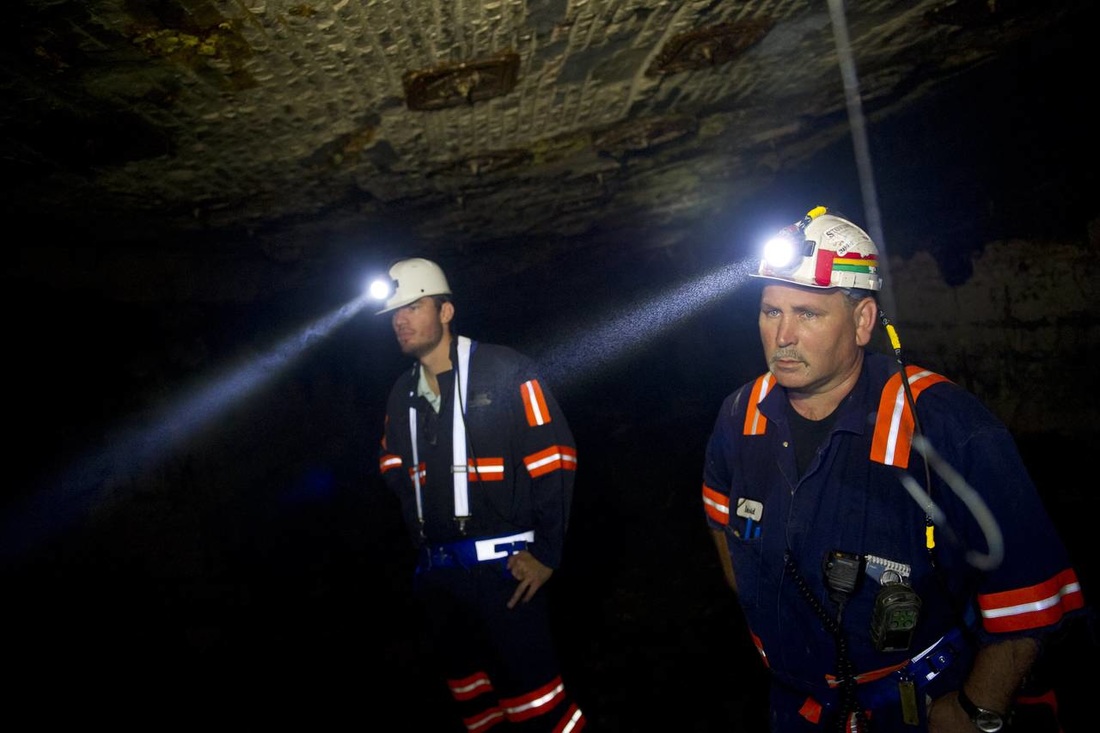|
As producers scale back, strategic buyers are few and far between—and the coal-industry outlook appears bleak By JOHN W. MILLER and MATT JARZEMSKY Oct. 13, 2015 5:43 p.m. ET Tom Clarke received a cold reception when he first approached Patriot Coal Corp. earlier this year. The company and its advisers were trying to sell some of its Appalachian mines afterfiling for bankruptcy protection. At first they doubted Mr. Clarke’s conservation group, whose mission is “to conserve Virginia’s natural resources to address climate change,” would have the money and know-how the deal required, according to people familiar with the matter. But Mr. Clarke managed to get an audience with the embattled miner. In a conference room at a private airport in Charleston, W.Va., he made his pitch: His Virginia Conservation Legacy Fund Inc. would take control of mining operations and cleanup projects, aiming to sell coal bundled with carbon credits linking it to forestry projects. Patriot, in exchange, would be freed from about $400 million in liabilities tied to the mines but wouldn’t receive a significant cash payment. Patriot accepted the offer. Mr. Clarke’s deal with Patriot illustrates the depth of the coal industry’s slump. Major U.S. producers are scaling back, trying to shed mines and laying off employees. But the financial investors and large industry buyers that figured prominently in the last coal shakeout as acquirers are largely sitting out this round. “There’s just a vacuum of strategic buyers, especially at a larger scale,” said Fred Vescio, a managing director at investment bank Houlihan Lokey. Three major U.S. coal companies—Patriot Coal, Alpha Natural Resources Inc. and Walter Energy Inc.—filed for bankruptcy protection this year. Patriot is selling most of its assetsto Blackhawk Mining LLC, a Kentucky-based regional miner founded five years ago by coal entrepreneur Mitch Potter. Alpha Natural has said it won’t immediately sell mines as part of its restructuring. Walter Energy is evaluating options after last month’s breakdown of its initial restructuring plan, which would have given creditors ownership of a slimmed-down version of the company. “I don’t think we could have even begun to think about doing this [deal] five years ago,” Mr. Clarke, a father of eight who also runs a Virginia-based health system, said in an interview. Black Diamond Capital Management LLC has agreed to commit $25 million in debt financing for a 30% stake in a mine the conservation fund is acquiring, among other compensation, according to people familiar with the matter. A judge approved the arrangement as part of Patriot’s bankruptcy-exit plan last week. In past coal-industry routs, buyers like Mr. Clarke would likely have been outbid by investors such as Wilbur Ross, the billionaire who revels in reviving down-and-out industries. Mr. Ross and other investors bought assets from bankrupt Horizon Natural Resources to form International Coal Group Inc. in 2004. In 2011, ICG sold to Arch Coal Group Inc. for $3.4 billion. This time around, those investors are put off by the U.S. coal industry’s bleak long-term outlook. Coal burned by power plants faces competition from cheap and relatively clean natural gas, and a slowdown in demand from China has driven the price of coal used in steelmaking to an 11-year low. In an email, Mr. Ross said he’s not inclined to invest in coal assets because of Environmental Protection Agency regulations, the decline of Appalachian reserves and inexpensive natural gas. Mr. Ross isn’t the only big player on the sidelines. Billionaire coal investor Chris Clinehasn’t bought any new mines this decade. Nor has former Xstrata PLC chief Mick Davis,who now runs a fund called X2 Resources. Other cash-rich mining funds, such as Aaron Regent’s Magris Resources Inc., are investing in mines. But coal, said Mr. Regent, “is not at the top of our list.” Mr. Davis declined to comment, and Mr. Cline couldn't be reached for comment. A big exception is U.S. coal king Robert Murray. In April, his Murray Energy Corp. bought a significant stake in Mr. Cline’s Foresight Energy LP, which operates some of the most productive mines in the U.S. in the Illinois basin. Industry experts think Mr. Murray is done shopping for the time being. A company spokesman said the miner is still interested in buying the “best possible” coal assets in a few target areas. Other major U.S. producers could yet make an appearance. Alliance Resource Partners LP,Consol Energy Inc. and Westmoreland CoalCo. have less debt than some rivals and didn’t indulge in expensive acquisitions over the past decade.
“We’re always interested in buying properties that conform to our business model” of buying mines adjacent to power plants, said Westmoreland Chief Executive Keith Alessi.Consol and Alliance didn’t respond to requests for comment. For now, analysts say, deal-making in the U.S. coal sector features mainly smaller players picking off modest mining operations. Take 31-year-old Ian Ganzer. A decade ago, the Emory University baseball player was headed for a career on Wall Street, but a detour to pitch in the summer leagues led him to work on developing a coal mine part-owned by his doctor father. Now, Mr. Ganzer is teaming up with investors including South Carolina-based Royal Energy Resources to buy, for $20 million, two coal mines that straddle the Ohio-West Virginia border. The mining complex, which cost around $220 million to build, holds 185 million tons of thermal coal and, at peak production in 2009, generated 250,000 tons a month, while employing 200 miners. Mr. Ganzer looked at two dozen potential mine acquisitions in Appalachia before settling on the property, which has a new coal-processing plant, a barge-loading facility and is near two coal-fired power plants. Mr. Cline offered to sell it because of geological hurdles, including sandstone embedded in the coal. Mr. Ganzer’s bet is that with equipment, labor and energy all less costly now, coal prices only have to recover a little for his mines to turn a profit. Even as the U.S. turns away from coal, it remains the source of over 30% of the nation’s electricity. And developments, such as a Republican winning the White House and repealing environmental rules, could make coal a desirable commodity once again. “I hope this will be a long and prosperous journey or a short and painful one,” said Mr. Ganzer, who owns a piece of the company and was recently named its chief operating officer. “But I wouldn’t be doing this if I didn’t think that I would be successful.” Write to John W. Miller at [email protected] and Matt Jarzemsky at[email protected] http://www.wsj.com/articles/in-coal-industrys-slump-usual-buyers-go-underground-1444772623
0 Comments
Leave a Reply. |
Gene HazzardDon't Be Envious of Evil Men Archives
June 2024
Categories
All
|
- Home
- Sanjiv Handa
- Gene's Blog
- Rotunda RFP
- Gene Hazzard -Keeping eyes open
- Chronology of Tagami's scheme of Private-Public Partnership with City Projects
- Another Tagami scheme - Rotunda Building deal
- Oakland Army Base
- Billboards in Oakland
- Port of Oakland
- Oakland Raiders?
-
Who is running Oakland?
- Jerry Brown
- Don Perata
- Judge Robert B. Freedman
- Jacques Barzaghi
- Gawfco Enterprises
- Deception
- Doug Bloch
-
Phil Tagami
>
- SF Business Times November 20, 2005
- Rotunda wrestling
- A conversation with Oakland developer Phil Tagami
- Audit of $91 million Fox Theater project
- Tagami Conflict
- CCIG Response to Oakland Works
- Oakland developer Phil Tagami named to state medical board
- ‘Shotgun Phil’ hits another bullseye — with governor’s help
- CleanOakland Store
- CenterPoint Properties



 RSS Feed
RSS Feed
